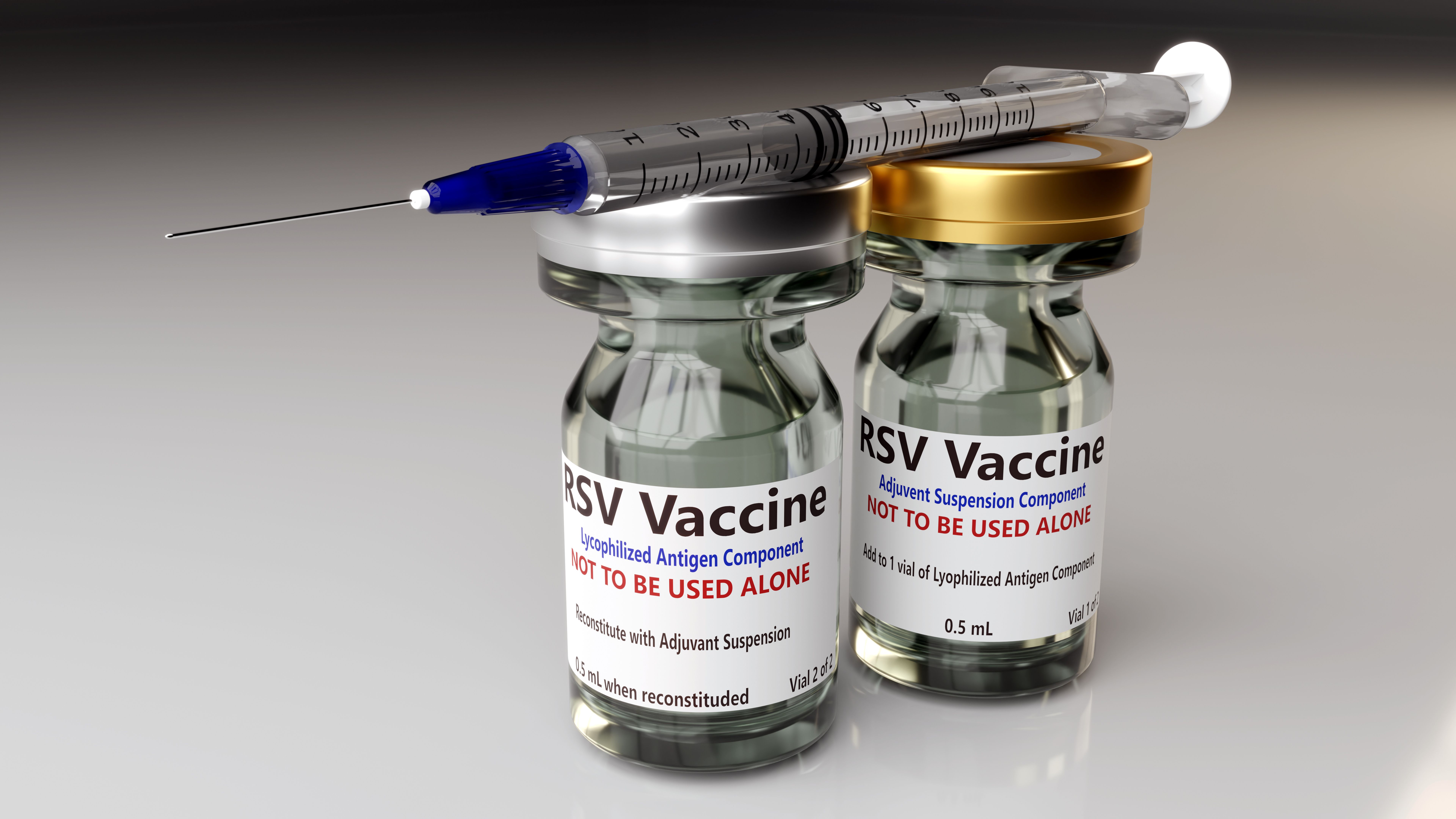- Center on Health Equity & Access
- Clinical
- Health Care Cost
- Health Care Delivery
- Insurance
- Policy
- Technology
- Value-Based Care
RSV Vaccination Effective in Older Adults, but Protection Declines Over Time
RSV vaccines protect adults 60 years and older against illness, but effectiveness declines over 2 seasons, especially in those who are immunocompromised.
Veterans aged 60 years and older who received a single dose of the respiratory syncytial virus (RSV) prefusion F3 (RSVPreF3) or RSV prefusion F (RSVpreF) vaccine remained protected against illness across 2 respiratory illness seasons, though protection declined over time, according to a study published today in JAMA Internal Medicine.1
RSV vaccines protect adults 60 and older against illness, but effectiveness declines over 2 seasons, especially in those who are immunocompromised. | Image Credit: Peter Hansen - stock.adobe.com

Addressing the Lack of Long-Term RSV Vaccine Evidence
The first RSV vaccine, GSK’s Arexvy, was approved in May 2023 and recommended for adults 60 years and older.2 Currently, approved options include a single dose of 1 of 2 RSV prefusion F protein vaccines (RSVPreF3 or RSVpreF) or the messenger RNA-1345.1 Despite availability, only 48% of US adults 75 years and older and 38% of those aged 60 to 74 years with a high-risk condition reported receiving an RSV vaccination by the end of the 2024-2025 respiratory illness season.
While clinical trials demonstrated moderate to high efficacy of RSV vaccines against RSV-associated lower respiratory tract disease over a single season, data on the durability of protection across multiple seasons in real-world populations and key subgroups remain limited. The researchers emphasized the need for evidence from routine clinical practice to fill this gap.
To address this, they conducted an observational study evaluating the effectiveness of a single RSVPreF3 or RSVpreF dose in preventing documented RSV infections, as well as RSV-associated emergency department (ED) or urgent care (UC) visits, hospitalizations, or intensive care unit (ICU) admissions over 2 respiratory seasons.
The study used data from the Veterans Health Administration (VHA) Corporate Data Warehouse, which integrates real-time electronic health records from all VHA facilities and includes detailed demographic, geographical, and clinical information. The researchers analyzed veterans aged 60 and older who were eligible for RSV vaccination between September 2023 and March 2024. Eligible vaccine recipients were matched with up to 4 unvaccinated individuals in 7 monthly, nested sequential trials, with outcomes analyzed through March 31, 2025.
RSV Vaccine Protection Fades Over Time
Among 3,188,661 eligible veterans, 301,300 individuals (9.4%) received RSV vaccination. Of these, 288,111 (95.6%) were matched to 1,075,893 unique control individuals. RSVpreF (64.0%; n = 184,268) was more common than RSVPreF3 (35.2%; n = 101,453) among vaccine recipients.
Across both groups, 95% (n = 544,364) were male, with a median age of 76.1 (IQR, 71.6-80.0) years, and 6.5% (n = 37,254) were immunocompromised. Median follow-up from day 14 was 15.8 (IQR, 14.5-17.0) months, with a maximum follow-up of 19.0 months.
Estimated vaccine effectiveness against documented RSV infections was 82.5% (95% CI, 77.5%-86.9%) during the first month after day 14 post vaccine, decreasing to 59.4% (95% CI, 55.6%-63.5%) over 18 months of follow-up. Among immunocompromised individuals, protection decreased from 75.2% (95% CI, 52.5%-89.3%) to 39.7% (95% CI, 23.9%-52.7%).
Additionally, effectiveness against RSV-associated ED and UC visits fell from 84.9% (95% CI, 78.4%-90.2%) to 60.6% (95% CI, 56.4%-65.7%). Similarly, effectiveness against RSV-associated hospitalizations decreased from 88.9% (95% CI, 77.9%-95.7%) to 57.3% (95% CI, 47.3%-66.4%), and against related ICU admissions from 92.5% (95% CI, 61.1%-100.0%) to 71.9% (95% CI, 42.8%-90.0%).
Closing Gaps and Improving Protection
The authors concluded by acknowledging their limitations, including that the findings may not be fully generalizable to other patient populations. Still, they emphasized the clinical relevance of the results and areas for further research.
“The study found that RSV vaccination was effective in preventing RSV illness and associated health care use, but that protection decreased over 2 seasons,” the authors wrote. “Reductions were most notable among immunocompromised persons, suggesting the need to review whether additional vaccine doses may benefit certain risk groups.”
References
- Bejema KL, Bui DP, Yan L. Durability of respiratory syncytial virus vaccine effectiveness among US veterans. JAMA Intern Med. Published online November 24, 2025. doi:10.1001/jamainternmed.2025.6355
- Bonavitacola J. First respiratory syncytial virus vaccine approved by FDA. May 3, 2023. Accessed November 24, 2025. https://www.ajmc.com/view/first-respiratory-syncytial-virus-vaccine-approved-by-fda
